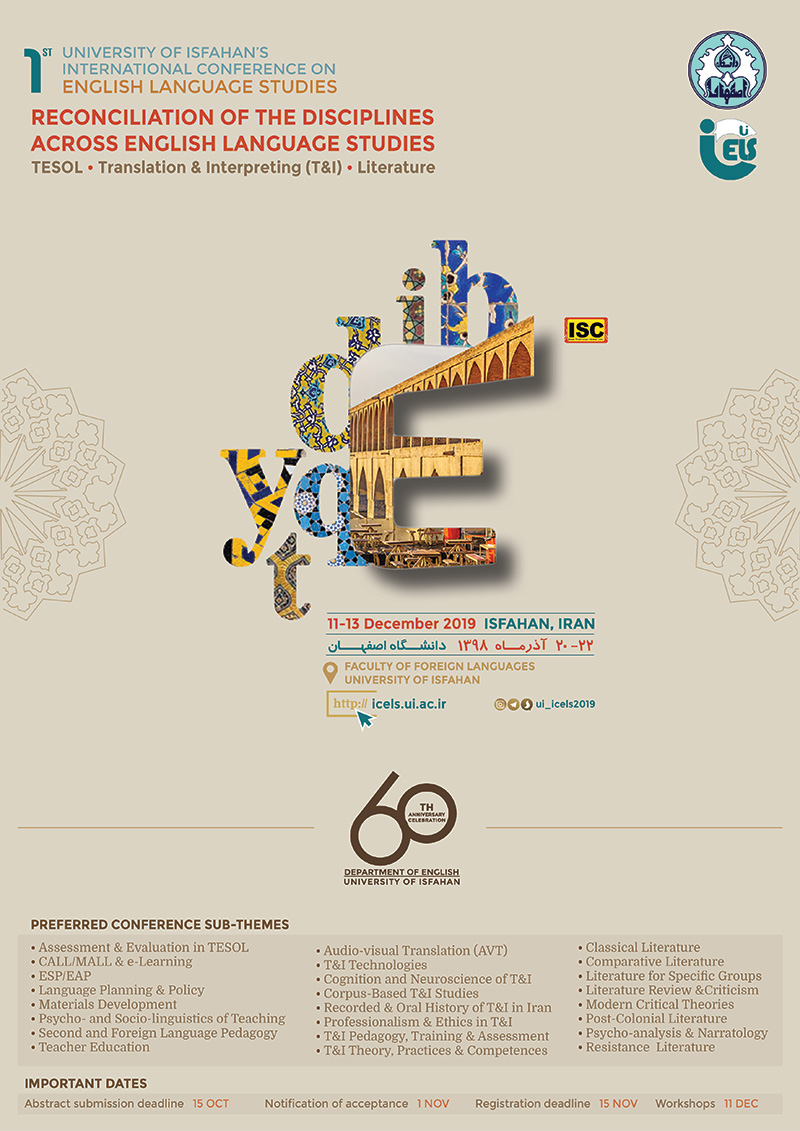
The Relationship between Intelligence Beliefs and Academic Engagement of EFL Learners: The Role of Social Cognition
نویسندگان :
Moloud Mohammadi ( Science and Research Branch of Islamic Azad University )
چکیده
The overall framework of student achievement includes personal and environmental factors such as: a. Academic engagement (Walker & Pearce, 2014) which includes emotional, cognitive, and behavioral factors (Appleton, Christenson, Kim, & Reschly, 2006); b. Individual and environmental contexts which can affect individual’s knowledge and academic engagement including intelligence beliefs of people. These beliefs, based on the cognitive-social approach of Dweck and Leggett (1988), Dweck and Molden (2005, 2017), and Dweck (2000), contain incremental belief of intelligence (intelligence ability to be upgraded and controllable) and entity belief of intelligence (fixed and non-flexible intelligence); and c. Social cognition that is defined as the ability of self-cognition, other-cognition, cognition of others’ mental attitudes through inference of their tone, facial expressions and body gestures, and the ability to argue about others’ mental attitudes (Boone & Buck, 2003; Pinkham, Penn, Green, Buck, Healey, & Harvey, 2014). The purpose of this study was to investigate the mediating role of social cognition in the relationship between intelligence beliefs and academic engagement. The research method was descriptive research and correlation design. The population of the study was 150 EFL students in the academic year of 2018-19 who were selected through cluster sampling since it reduces costs and improves sampling efficiency. Data were gathered using the Implicit Theory of Intelligence Scale (ITIS) ( Abd-El-Fattah & Yates, 2005), Student Social Cognition Questionnaire (SHAD)( Nejati, Kamari, & Jafari, 2018), and the Academic Engagement Inventory (SalmelaAro, & Upadyaya, 2012) and analyzed using Pearson correlation coefficient and path analysis methods. The results of the correlation matrix showed that there is a significant correlation between all the variables of the research (including social cognition, academic engagement and intelligence factors).Incremental factor of intelligence has a direct impact on the dimensions of energy and absorption, but entity factor of intelligence has no significant effect on any of the variables in the research. Moreover, the results of path analysis indicated a significant mediating role for the social cognition in the relationship between intelligence beliefs and academic engagement subscales. In general, it can be concluded that social cognition and intelligence beliefs are two of the most important factors in studying academic engagement of EFL learners.کليدواژه ها
Intelligence Factors, Academic Engagement, Energy, Dedication; Absorption, Social Cognitionکد مقاله / لینک ثابت به این مقاله
برای لینک دهی به این مقاله، می توانید از لینک زیر استفاده نمایید. این لینک همیشه ثابت است :نحوه استناد به مقاله
در صورتی که می خواهید در اثر پژوهشی خود به این مقاله ارجاع دهید، به سادگی می توانید از عبارت زیر در بخش منابع و مراجع استفاده نمایید:Moloud Mohammadi , 1398 , The Relationship between Intelligence Beliefs and Academic Engagement of EFL Learners: The Role of Social Cognition , اولين کنفرانس بين المللي مطالعات زبان انگليسي
دیگر مقالات این رویداد
© کلیه حقوق متعلق به دانشگاه اصفهان میباشد.
